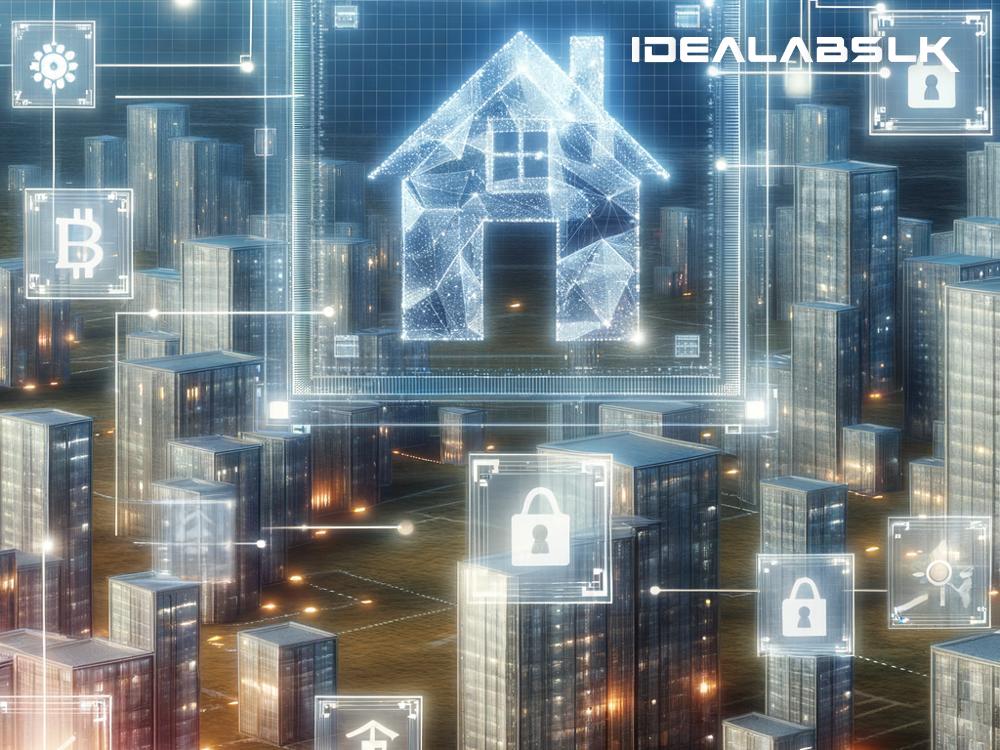Title: Making Property Deals Simpler and Safer with Blockchain Technology
The process of buying or selling a house is notoriously complicated, time-consuming, and fraught with the risk of fraud at almost every turn. However, a relatively new technology is poised to revolutionize the real estate industry as we know it – Blockchain. At first glance, the world of blockchain, with its complex jargon, might seem intimidating. But when broken down into simple terms, its relevance to digital real estate contracts becomes crystal clear.
What is Blockchain, Anyway?
Imagine a digital ledger that is accessible to numerous people across the globe but cannot be tampered with or altered by any single user without everyone else noticing. That's basically what blockchain technology is. It's the backbone of cryptocurrencies like Bitcoin but has vast potential beyond digital currencies, especially in real estate transactions.
The Traditional Real Estate Process: A Quick Overview
Traditionally, buying or selling property involves several steps – from signing a myriad of documents to third-party verifications, escrow arrangements, and endless negotiations. Each step introduces potential delays, costs, and risks, including fraud. Misplaced or fraudulent documents can lead to severe legal complications, making the home-buying process anything but straightforward.
Enter Blockchain: The Game Changer
Here's where blockchain comes in to offer a breath of fresh air. When applied to digital real estate contracts, blockchain can:
-
Reduce Fraud: Since each transaction on blockchain is heavily encrypted and immutable (meaning it cannot be changed), the risk of fraudulent activities is minimized. No longer can documents be easily forged or tampered with.
-
Speed Up Transactions: By using blockchain, the need for middlemen – like lawyers and banks – is greatly reduced. This means that property transactions can be completed much faster, as everything is done on a secure, decentralized platform.
-
Cut Down Costs: With fewer intermediaries involved, the costs associated with buying or selling a property can also be significantly reduced. No more hefty fees for various verification processes or escrow services.
-
Increase Transparency: Every transaction on the blockchain is recorded and can be viewed by anyone in the network, increasing transparency and building trust among parties involved in a real estate transaction.
Real-World Applications
Imagine you're buying a home. In a blockchain-enabled world, the contract, the deed, and all related documents could be securely and permanently recorded on the blockchain. Once both parties agree and the transaction is completed, it's recorded in the blockchain for everyone to see (in an anonymized fashion), ensuring a transparent, immutable record of ownership.
Moreover, Smart Contracts – self-executing contracts with the terms of the agreement directly written into code – can automatically enforce and execute the terms of a real estate agreement. For example, a smart contract could automatically transfer the property title to the buyer once the payment is confirmed on the blockchain, streamlining the entire process.
The Challenges Ahead
Despite its potential, integrating blockchain into the real estate sector comes with its set of challenges. Regulatory acceptance is a big hurdle, as real estate laws vary significantly from one jurisdiction to another. Additionally, there's also the challenge of getting all stakeholders, many of whom are used to the traditional way of doing things, to adapt to this new technology.
The Future is Here
Innovations often take time to be fully realized, and blockchain in real estate is no exception. However, several startups and even some governments are experimenting with blockchain for land registries and real estate transactions, signaling the beginning of a major shift in how property deals are conducted.
The adoption of blockchain in digital real estate contracts could mark the end of an era beset with inefficiencies, fraud, and excessive costs. It offers a glimpse into a future where buying or selling a home is safer, faster, and cheaper. While hurdles remain, the potential benefits make it an exciting development worth watching. As technology continues to evolve, it's clear that blockchain holds the key to unlocking a more transparent, efficient, and secure real estate industry.

